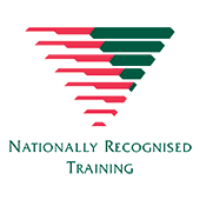Community support workers are also called social workers, social support workers, or welfare workers. They cater to individuals such as the disabled and the elderly and help them with their social, physical, and emotional needs. They support them in various ways, such as providing personal care like grooming and feeding or doing household chores like cooking and cleaning. They also help them in transportation and recreation.
Support workers are indispensable professionals who provide care and assistance to clients to help them achieve independence in their daily lives.
How to Become a Support Worker
If you’re interested in becoming a community support worker but don’t know how, we’re here to help you out. Industry Skills Training (IST) offers state-of-the-art courses on community support work. We’ve been offering high-quality education for over a decade through the efforts of our professional staff with extensive expertise in the industrial and education sectors. Our mission is simple: it’s to equip you with the skills and experience necessary to accomplish your goals.
1. Consider earning a diploma
If you want a more comprehensive program for community support work, consider taking IST’s diploma course in community services. In this course, you’ll get the skills and experience needed for full-time employment through a combination of theoretical work and placement hours.
When you finish your diploma course, you’ll have specialised skills in community services and will be able to work independently under broad directions from the senior management. At this level, you’ll be able to work directly or give direct support to individuals or groups of individuals.
2. Acquire certification
You may also consider acquiring a formal community support certification to begin your career path in this field. IST’s certificate program in community service is less extensive than the diploma course, but it’s perfect if you’re just looking for entry-level community support work to start your career. You’ll get the minimum career-related training required to execute your job properly. You’ll also be working under the direction and supervision of others.
At this level, daily support of individuals in community settings or assistance with the implementation of specific community-based programs may be included in the work. Work may also be done in a range of community service organisations.
Acquiring a certification may open up several prospects for advancement in this industry. The training will prepare you to fulfil the tasks of a community support worker efficiently. It’s also a way to show that you’re skilled and duly qualified to be a good support worker.
3. Get experience
Participate in a work placement to get exposed to different issues, and situations that support workers face daily. It doesn’t have to be complicated. You can start by entering a certification course and get entry-level positions where more experienced members will supervise you. This way, you’ll gain experience in a broad range of cases and scenarios that can further enhance your skillset and make you a better candidate in the future. But if you want to gain more specialised skills in community services and work independently, you can also choose a diploma course.
Either way, make sure you seek employment opportunities with an approved and recognised organisation like IST. IST offers an expanding range of nationally recognised qualifications and training. We do our best to provide the best education possible to our students by providing a flexible, easy-to-access mode of learning.
Skills Required for Support Worker Jobs
Good education or certification alone won’t suffice to succeed in any profession or occupation. You still need to have the right skills and experience to thrive. And the job of a community support worker is no exception.
Being a community support worker isn’t easy. Support workers assist society’s most vulnerable populations with their daily needs. They’re the first point of contact for these people, and as such, a few critical abilities are required.
Here’s a list of skills needed for support worker jobs. These are skills that support workers must possess to thrive in the industry.

1. Active Listening
As a community support worker, you must put yourself in your client’s situation. You must listen carefully to their worries and determine how you can best assist them. At first, you’re basically a stranger to your client. Great support workers must bridge this divide by actively listening, getting to know their clients, and evaluating their needs.
By recognising and valuing individuals’ unique experiences, community support workers may deliver more efficient and relevant services. All the information that they take in can be used to improve their client’s well-being.
2. People Skills
Being a community support worker denotes that you’ll be working with other people. It’s intrinsically a people-oriented job that requires regular one-on-one care. As such, support workers must have excellent interpersonal skills to put their clients at ease. That means you need to be able to communicate effectively. You must establish a solid rapport with your client, most especially if you’re helping clients in a vulnerable position, such as bathing or urinating. People skills come in handy in these situations.
3. Basic life support skills
Medical skills are one of the most critical community support worker skills you need. You may be working with people with health problems, and depending on their condition, you may need to administer medications or provide healthcare assistance. As such, you must have a basic knowledge of basic life support skills.
These skills include life-saving techniques such as resuscitation and first aid, which are crucial when working with the elderly or disabled.
4. Technical skills
Aside from medical support, welfare workers also assist clients with important administrative duties such as budgeting. Therefore, they may need to be knowledgeable with technology or computer savvy. They may need to handle filling out forms or typing documents, so support workers must be equipped with technical skills to help clients perform tasks that they are unable to do on their own.

5. Resilience
The people you’ll work with are not necessarily well-behaved or agreeable. Some can be impolite at first. You’ll meet different people with different personalities, and not all of them will be to your liking. Community support workers may be placed in difficult situations with a client. But they can stay in the role longer if they have patience and resilience. It’ll help them overcome any challenge that comes their way.
If you’re interested in becoming a community support worker and want to know more about our programs and services, contact us here.



